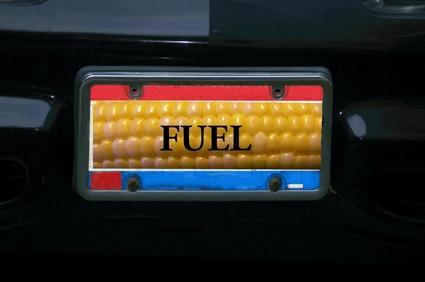Flex Fuel most commonly includes ethanol-based fuel blends or other fuels that contribute to reduced emissions. Ethanol blends are frequently used in areas where oxygenated gasoline is required to reduce emissions. Ethanol is a cleaner-burning fuel than gasoline but there are drawbacks.

Ethanol is ethyl alcohol, derived primarily from corn. It is colorless, combustible, and when used as a fuel alternative, considered clean burning compared to gasoline. In the U.S., there are two common blends of ethanol as fuel. E10, or "gasohol," is a blend of 10 percent ethanol and 90 percent gasoline. E85 is a biofuel comprised of a blend of 85 percent ethanol and 15 percent gasoline, used in flexible-fuel vehicles (FFV's). E85 is a clean-emissions technology rather than a fuel-economy enhancer.

Gasohol can be found throughout the United States as a common blend to reduce CO2 emissions, and nearly all car models built since 1998 are equipped to use it. All current models can safely run on gasohol. Areas mandated to reduce emissions as a result of the Clean Air Act may use gasohol in place of pure unleaded gasoline. The Department of Energy reports no discernible impact of E10 on vehicle performance on mileage, but users have reported a reduction of mileage of up to 10 percent.

Flexible Fuel Vehicles (FFV's) are vehicles that can run on unleaded gasoline, an alcohol fuel such as ethanol or methanol, or on any combination of alcohol-gasoline blend. The engine and fuel system on an FFV has been adapted to accommodate the slightly more corrosive alcohol fuels. While FFV's reduce the carbon footprint of the vehicle, mileage performance is impacted.

Ethanol is used to reduce some pollutants, but it doesn't noticeably improve gas mileage. Gasohol generally has little or no effect on mileage performance. E85, however, has a lower energy content than gasoline, and more must be burned to equal the same performance as a gallon of gasoline. Therefore FFV's using E85 tend to have lower mileage performance--up to 30 percent with an average of 15 to17 percent--when using E85 versus gasoline.

If you have an FFV, depending on the area in which you live, E85 may be cheaper per gallon than gasoline, which could help economically offset the lower mileage performance. Some biofuel advocates argue that simple changes to the engine will increase mileage performance with E85 (see the Resources section). On the other hand, gasohol is more widely available, and if you have (or want) to reduce emissions in your area, it may be a good alternative with no significant impact to mileage performance.
